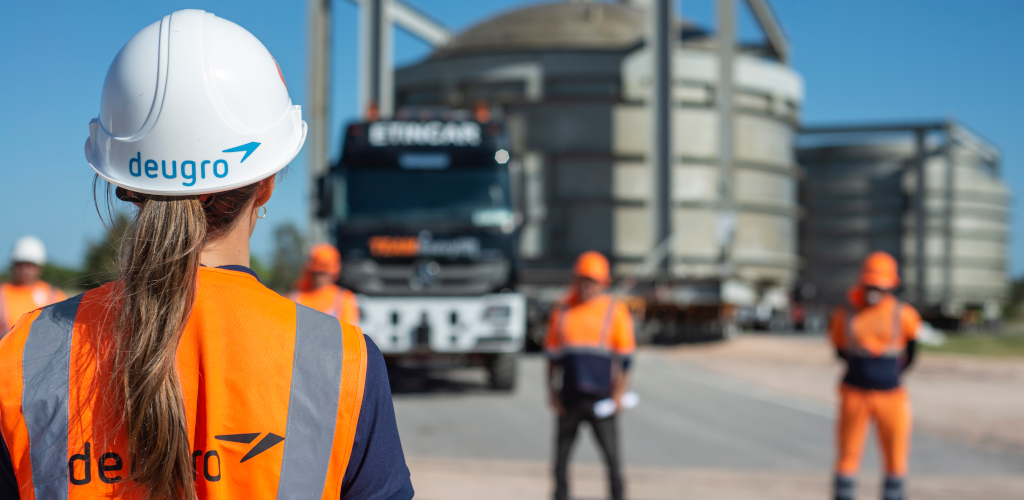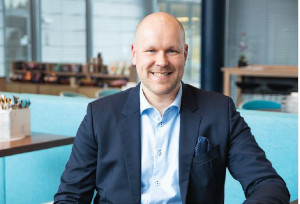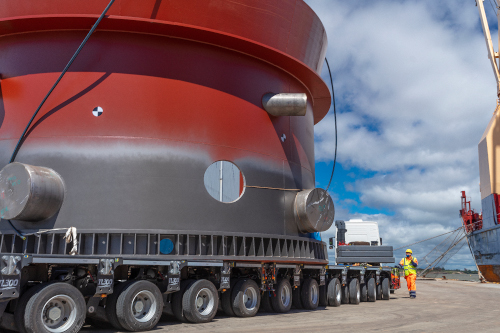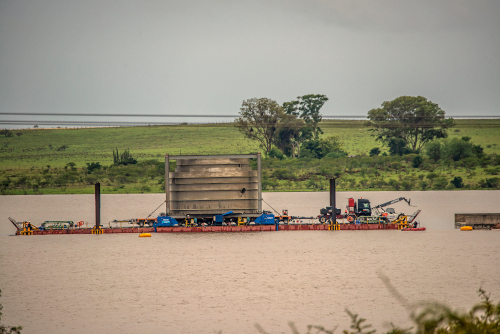E-Commerce Driving Demand, Says deugro’s Matias Setala

Pulp and paper will be a major source of cargo-carrying contracts for years to come, despite previous fears that digitalization and rapidly evolving consumer behaviour would lead to industry decline.
Speaking to Breakbulk, Matias Setala, president for Scandinavia and Eastern Europe at Switzerland-based deugro, said waning consumption of graphic paper had been offset by soaring demand for packaging, labelling, tissues and hygiene-related products.
 “E-commerce is driving the pulp and paper industry,” Setala said. “Everyone is ordering online, and all those products need to be packaged using sustainable, lightweight materials. It really is a driving force at the moment.”
“E-commerce is driving the pulp and paper industry,” Setala said. “Everyone is ordering online, and all those products need to be packaged using sustainable, lightweight materials. It really is a driving force at the moment.”
Consumption of these products will only grow as the population increases and living standards rise, the Helsinki-based executive added.
Sustainability is also spurring sector growth.
A by-product of pulp and paper mills is biomass, an organic material used to generate heat and electricity as a green alternative to fossil fuels. Biomass can also be used as feedstock to produce biofuels and biochemicals, medical products, food additives, cleaning products, textiles and various other materials, replacing fossil-based materials such as plastics.
Next-generation facilities are being designed as an integrated pulp, paper and bio-product mills, or purpose-built bio-product mills.
“The pulp and paper industry is really spending a lot of time and research and money, investigating and developing biomass-based products to replace fossil fuels. I would say the pace that things are being developed, the sky is the limit,” the executive said.
 Setala’s bullishness is backed up by studies projecting the global pulp and paper market to grow from US$519 billion in 2020 to US$680 billion by 2027, at a compound annual growth rate of 3.45 percent.
Setala’s bullishness is backed up by studies projecting the global pulp and paper market to grow from US$519 billion in 2020 to US$680 billion by 2027, at a compound annual growth rate of 3.45 percent.
To capitalize on the booming market, Setala, with 20 years’ experience in project logistics, has been selected to head up an industry vertical at deugro to develop pulp and paper capital projects in key regions around the world, including northern Europe, China and the Americas.
Expert teams with backgrounds in the industry have been deployed to develop the business and to support local producers, mill owners and equipment suppliers.
“We realized that even though for us here in Finland we have always worked for the pulp and paper industry, we felt there would be further opportunities for deugro on a global basis as well,” the executive said.
“Pulp and paper is a process industry, like oil and gas for example. Lots of big machinery, big equipment, big production plans. Very much the things that are interesting from a freight forwarder’s approach.”
The executive pointed to UPM’s world-scale Paso de los Toros paper mill in Uruguay, one of the South American nation’s largest-ever pulp projects.
The project, slated to deliver some 250,000 freight tonnes of breakbulk and 6,000 containers from various origins worldwide, is also calling for the construction of a new deep-water pulp terminal in the Port of Montevideo with the capacity to handle about 2 million tonnes of pulp per year.
 deugro – together with dteq, also part of the deugro group – has been planning the transport of project cargo for the facility since 2018.
deugro – together with dteq, also part of the deugro group – has been planning the transport of project cargo for the facility since 2018.
“It is a major project, and significant for us at deugro in every aspect,” Setala said. “Our scope has included not only the offshore portion – shipping the equipment from origin to the destination port – but also the final mile delivery from the ports of Montevideo and Fray Bentos to the job site at Durazno.”
The challenge of transporting inland items weighing up to 300 tonnes meant the forwarder had to devise some innovative solutions.
“We had to come up with the concept of building a barge, and jetties for the barge,” the executive said. “We had a barge going back and forth like a shuttle service taking all the heavy items across the river.”
“I think that made it very interesting for us, and also for everyone involved.”
deugro is now working on the final phase of the project, with the plant itself slated to come online in the second half of this year.
“We expect to see more and more investments worldwide,” Setala said.
